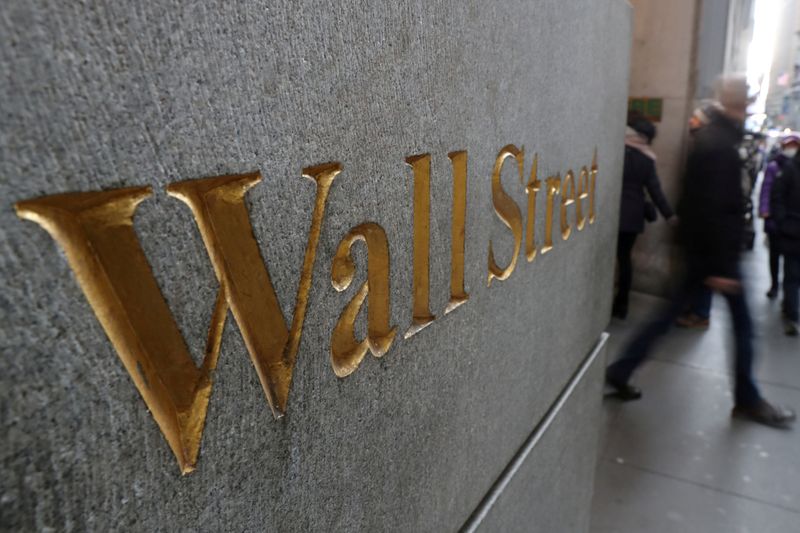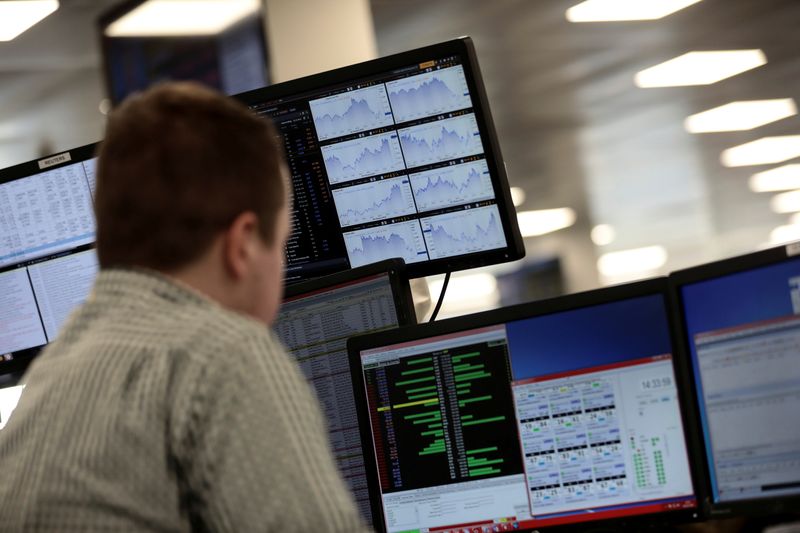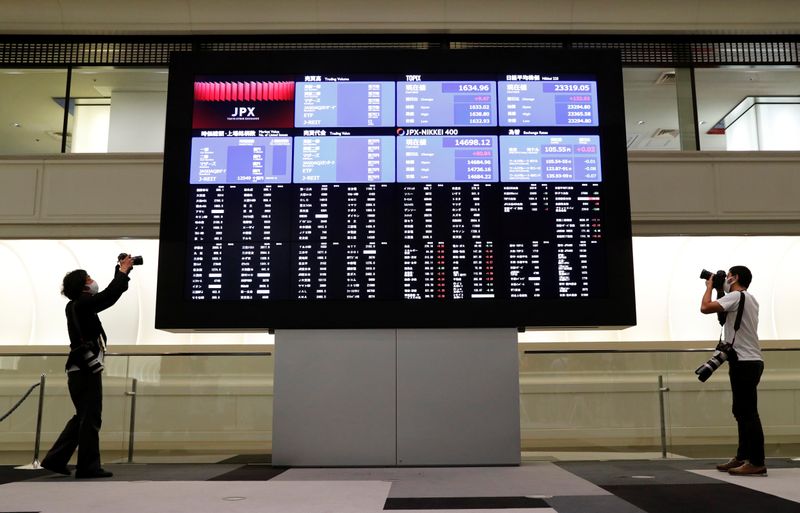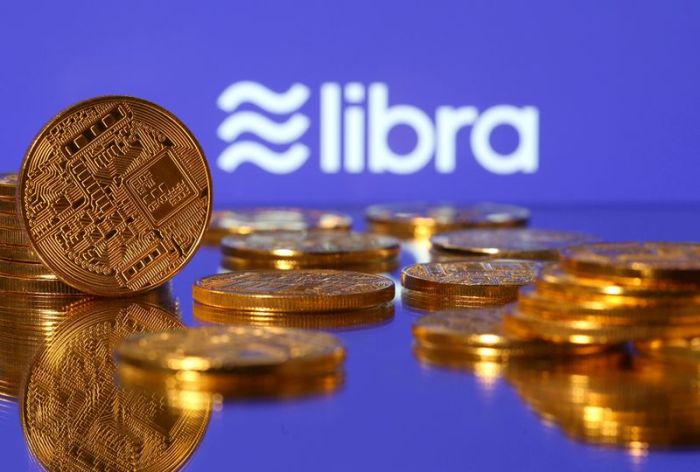NEW YORK/LONDON (Reuters) – Global shares closed lower on Thursday as investors shied from risk and sought safe havens such as the U.S. dollar on fears that a resurgence in coronavirus cases and a lack of more U.S. fiscal stimulus would hobble the world economy.
Although an offer by U.S. President Donald Trump on Thursday to raise the size of a stimulus package narrowed losses in U.S. shares as investors hoped a deal could be reached, many still believe that is unlikely before the Nov. 3 election.
Uncertainty over a stimulus package was compounded by data that suggested more government aid is needed to shore up growth, especially in the face of a spike in COVID-19 cases in Europe.
Data on Thursday showed an unexpected rise in U.S. weekly jobless claims figures.
The run of negative news dragged on European shares, which had their worst day in 3-1/2 weeks.
By late Thursday, all three major U.S. stock indexes had pared losses, with the Dow industrials closing near break-even.
The Dow Jones Industrial Average <.DJI> fell 19.8 points, or 0.07%, to close at 28,494.2. The S&P 500 <.SPX> lost 5.33 points, or 0.15%, to 3,483.34 and the Nasdaq Composite <.IXIC> dropped 54.86 points, or 0.47%, to 11,713.87.
“Virus restrictions across Europe continue to sour sentiment,” wrote Win Thin and Ilan Solot, currency strategists at BBH Global Currency Strategy, adding that a U.S. fiscal stimulus package is “deader than Elvis.”
“Now, the U.S. economy goes into the winter months without much-needed fiscal stimulus,” they wrote in a note.
The pan-European STOXX 600 <.STOXX> skidded 2.1% to a near two-week low, marking its biggest one-day fall in almost 3-1/2 weeks.
London’s FTSE 100 <.FTSE> fell 1.7% to a near two-week low as worries about the pandemic and uncertainty around a Brexit trade deal spurred investors to book profits.
MSCI’s broadest index of Asia-Pacific shares <.MIAPJ0000PUS> lost 1.3% with Hong Kong <.HSI> and India <.NSEI> both down over 2%, and Japan’s Nikkei <.N225> closing down 0.5%.
Underlining concerns about the health of the world economy, data showed on Thursday China’s factory gate prices fell at a faster-than-expected rate in September while consumer inflation slowed to its weakest pace in 19 months.
The move toward safety helped the U.S. dollar, a traditional safe-haven asset. The greenback <=USD> jumped 0.4% against a basket of six major currencies to 93.818.
A firmer dollar dragged on sterling <GBP=D3>, already hammered by concerns about the obstacles that may keep the European Union and Britain from reaching a trade deal by Dec. 31. The pound slumped 0.9% to $1.2897.
The euro <EUR=D3> drooped 0.4% against the dollar to $1.1702, barely budging on comments by European Central Bank President Christine Lagarde that the ECB was ready to ease policy further if needed.
Traders’ preference for safety helped government bonds. Germany’s government bonds <DE10YT=RR> rallied to leave their yields at their lowest level since the March spread of COVID-19 caused a global meltdown in stock markets and other riskier assets.
Gold reversed earlier losses to trade in the black, helped in part by Trump’s comments that he was keen on more U.S. fiscal stimulus before the November election.
U.S. gold futures <GCv1> settled up 0.1% at $1,908.90 an ounce.
Oil prices, however, were weighed by concerns about the coronavirus and its impact on the world economy, though losses narrowed compared with earlier in the day.
Brent crude futures <LCOc1> dropped 16 cents to settle at $43.16 a barrel, while U.S. West Texas Intermediate crude futures <CLc1> slipped 8 cents to settle at $40.96 a barrel.
(Reporting by Koh Gui Qing in New York and Huw Jones in London; Editing by Nick Zieminski and Matthew Lewis)





















